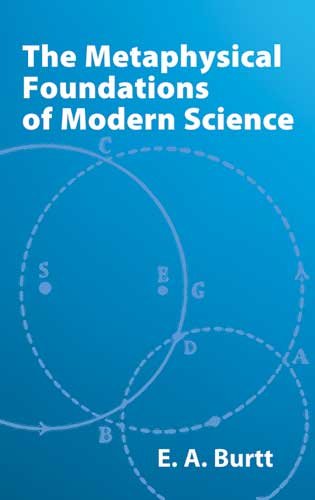

Most ebook files are in PDF format, so you can easily read them using various software such as Foxit Reader or directly on the Google Chrome browser.
Some ebook files are released by publishers in other formats such as .awz, .mobi, .epub, .fb2, etc. You may need to install specific software to read these formats on mobile/PC, such as Calibre.
Please read the tutorial at this link: https://ebookbell.com/faq
We offer FREE conversion to the popular formats you request; however, this may take some time. Therefore, right after payment, please email us, and we will try to provide the service as quickly as possible.
For some exceptional file formats or broken links (if any), please refrain from opening any disputes. Instead, email us first, and we will try to assist within a maximum of 6 hours.
EbookBell Team

4.3
68 reviews
ISBN 10: 0486425517
ISBN 13: 9780486425511
Author: E. A. Burtt
To the medieval thinker, man was the center of creation and all of nature existed purely for his benefit. The shift from the philosophy of the Middle Ages to the modern view of humanity’s less central place in the universe ranks as the greatest revolution in the history of Western thought, and this classic in the philosophy of science describes and analyzes how that profound change occurred. A fascinating analysis of the works of Copernicus, Kepler, Galileo, Descartes, Hobbes, Gilbert, Boyle, and Newton, it not only establishes the reasons for the triumph of the modern perspective, but also accounts for certain limitations in this view that continue to characterize contemporary scientific thought. A criticism as well as a history of the change that made possible the rise of modern science, this volume is also a guide to understanding the methods and accomplishments of the great philosopher-scientists of the sixteenth and seventeenth centuries.
CHAPTER I. - INTRODUCTION
A. Historical Problem Suggested by the Nature of Modern Thought
B. The Metaphysical Foundations of Modern Science the Key to this Problem
CHAPTER II. - COPERNICUS AND KEPLER
A. The Problem of the New Astronomy
B. Metaphysical Bearings of the Pre-Copernican Progress in Mathematics
C. Ultimate Implications of Copernicus’ Step–Revival of Pythagoreanism
D. Kepler’s Early Acceptance of the New World-Scheme
E. First Formulation of the New Metaphysics–Causality, Quantity, Primary and Secondary Qualities
CHAPTER III. - GALILEO
A. The Science of “Local Motion”
B. Nature as Mathematical Order–Galileo’s Method
C. The Subjectivity of Secondary Qualities
D. Motion, Space, and Time
E. The Nature of Causality–God and the Physical World–Positivism
CHAPTER IV. - DESCARTES
A. Mathematics as the Key to Knowledge
B. Geometrical Conception of the Physical Universe
C. “Res extensa” and “res cogitans”
D. Problem of Mind and Body
CHAPTER V. - SEVENTEENTH-CENTURY ENGLISH PHILOSOPHY
A. Hobbes’ Attack on the Cartesian Dualism
B. Treatment of Secondary Qualities and Causality
C. More’s Notion of Extension as a Category of Spirit
D. The “Spirit of Nature”
E. Space as the Divine Presence
F. Barrow’s Philosophy of Method, Space, and Time
CHAPTER VI. - GILBERT AND BOYLE
A. The Non-Mathematical Scientific Current
B. Boyle’s Importance as Scientist and Philosopher
C. Acceptance and Defence of the Mechanical World View
D. Value of Qualitative and Teleological Explanations
E. Insistence on Reality of Secondary Qualities–Conception of Man
F. Pessimistic View of Human Knowledge–Positivism
G. Boyle’s Philosophy of the Ether
H. God’s Relation to the Mechanical World
I. Summary of the Pre-Newtonian Development
CHAPTER VII. - THE METAPHYSICS OF NEWTON
Section 1. Newton’s Method
Section 2. The Doctrine of Positivism
Section 3. Newton’s General Conception of the World, and of Man’s Relation to It
Section 4. Space, Time, and Mass
Section 5. Newton’s Conception of the Ether
Section 6. God–Creator and Preserver of the Order of the World
CHAPTER VIII. - CONCLUSION
the metaphysical foundations of modern science pdf
the metaphysical foundations of modern science
the metaphysics of modern existence
the evolution of modern metaphysics making sense of things
Tags: Burtt, Metaphysical, Foundations, Modern